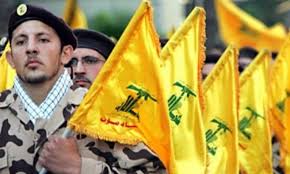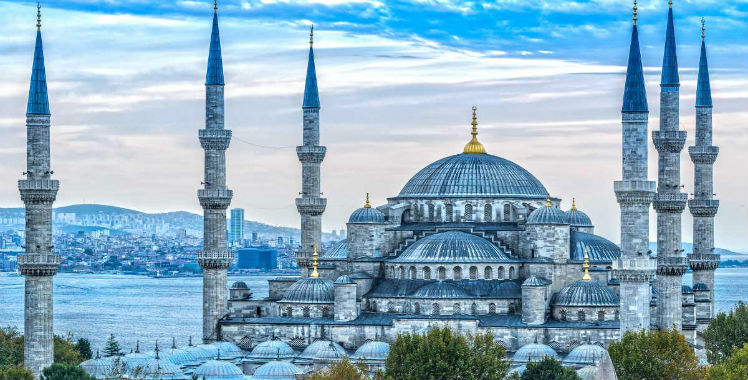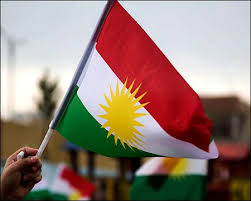Breaking
- MENU

The peace agreement between Israel and the UAE lays the foundation for a future Israeli-Arab alliance, which has been quietly developing behind the scenes over the past several years. I believe that over a relatively short period of time, such an alliance will emerge, eventually including nine Arab States: the UAE, Bahrain, Oman, Saudi Arabia, Jordan, Egypt, and at a later date, Kuwait, Qatar, and the Palestinians, creating a crescent of land extending from the Gulf to the Mediterranean. Such a new alliance will more than likely also include Sudan, Morocco, and other Arab states, and will decisively change the geostrategic dynamic in the Middle East.
It has been long since the Arab states ruled out military confrontation with Israel, not only because Israel is militarily formidable and is an unshakable reality with which they have no direct conflict. To the contrary, they view Israel as a regional nuclear power that can face off against Iran, their common enemy, which will serve their mutual national security interests. In addition, the Arab states and Israel have become wary of Turkey’s President Erdogan meddling in the region to promote his neo-Ottoman agenda.
Finally, the Arab states have concluded that they can no longer sacrifice their national interests on the altar of Palestinian intransigence to reach a peace agreement with Israel. The fact that the Arab states have come to appreciate Israel’s extraordinary advances in just about every field of science and the benefits from that which they have already been gaining during the last decade, also played an important role in the transformational process that will give birth to the alliance.
The impact on Iran’s future regional design
I believe that Iran’s decade-long threats against Israel and the Gulf states was the main cause behind the Israel-UAE deal, which will likely lead to the establishment of an alliance in the near future. An alliance’s implications for Iran would be of historic proportion. Iran has for many years been trying to consolidate its own ‘crescent’ from the Gulf to the Mediterranean, through Iraq, Syria, and Lebanon.
Iran will soon face an impenetrable parallel crescent of an Israeli-Arab alliance with a formidable military power that includes nuclear weapons in the hands of the Israelis. Unlike the emerging alliance in which every country will have a high stake and will be resolute to maintain and strengthen it, conversely Iran’s presence in Iraq, Syria, and Lebanon is tenuous at best. In Iraq there is a growing movement that wants Iran out of the country, and the Iraqi government does not seem to be inclined to suppress it.
In Syria, Iran is under a constant Israeli assault while Russia does not want Tehran to deeply entrench itself in the country. Lebanon is in turmoil; although Hezbollah exerts immense political influence in the country, the group does not want to confront Israel militarily and remains at the mercy of Iran, whose economy is battered and supply chain of military hardware is regularly attacked by Israel.
All the same, the Lebanese government has no quarrel with Israel and given the likely emergence of the Israeli-Arab alliance, Lebanon, including Hezbollah, will have to recalibrate their political standing in the face of this likely new emerging reality.
Iran understands the implications of the Israeli-UAE peace deal and all Rouhani musters to state is that “They [the UAE] better be mindful. They have committed a huge mistake, a treacherous act. We hope they will realize this and abandon this wrong path.”
Iran will face two choices: a) continue its aggressive policies by supporting extremist radical groups, and maintain its efforts to subvert the Gulf states while pursuing the development of nuclear weapons and suffering from the continuing sanctions and an Israeli military and cyber onslaught; or b) accept the new developing reality, curb its nuclear ambitions and agree to enter into new negotiations with the US, salvage its economy, and prevent a regime change, which is front and centre in their concerns.
Iran will certainly test the grounds first before it changes its posture to ascertain the extent of and speed with which the new emerging alliance will blossom, what will be its military components, and the degree to which the US will be involved. Tehran may well show more restraint in the coming months and will likely opt for the second option to save its economy from a total collapse and preserve the regime, especially since the alliance, once in place, will severely impede its hegemonial ambitions and force it to abandon its strategy of confrontation.
A game changer for the Palestinians
As a new alliance emerges, it will have serious implications on the Palestinians. From the time the Israeli-Egyptian peace treaty was signed in 1979, through the 1993 Oslo Accords and the Israeli-Jordanian peace treaty in 1995, to the introduction of the Arab Peace Initiative in 2002, the Palestinians missed every opportunity to reach a peace agreement with Israel based on a two-state solution. The Arab states’ decades-long backing of the Palestinians began to gradually erode as they realized that they have become hostage to the Palestinians’ recalcitrance, and were no longer willing to sacrifice their national interests by supporting a ‘lost’ cause.
Regardless of the fact that the Palestinians have intensely criticized the UAE-Israeli peace agreement – with Senior Advisor Nabil Abu Rudeineh saying “the Palestinian leadership rejects and denounces the UAE, Israeli and US trilateral, surprising announcement” and that the deal is a “betrayal of Jerusalem, Al-Aqsa and the Palestinian cause” – they see the writing on the wall. The longer they wait to resume peace negotiations with Israel, the less support and backing they will receive from the Arab states and the weaker their position will become, especially since further annexation of Palestinian land has not been permanently removed from the table, from the perspective of the powerful Israeli extreme right constituency.
President Abbas will now be under increasing pressure from the EU and the Arab states not to miss yet another critical opening to engage the Israelis. He must seize the opportunity to reopen negotiations with Israel while they have paused annexation as part of their agreement with the UAE. Especially considering the fact that Bahrain and Sudan are in the process of negotiating a similar deal with Israel, which must likewise freeze further annexation, this is the opportune time for Abbas. Otherwise, he stands to lose further grounds and scuttle, perhaps permanently, the prospect of establishing a Palestinian state.
Hamas too will have to rethink its position, as the significant mounting loss of the Arab states’ backing will become increasingly more acute over time. The sooner it enters into a new peace negotiation with a long-term Hudna (ceasefire) as an interlude to reaching a permanent peace agreement separately or together with the PA, the better off it will be. Hamas will also realize that they will no longer be able to rely on either Iran or Turkey for financial and political support once the alliance is in place.
The effect on Turkey’s expansionist ambition
The third significant implication of the prospective Israeli-Arab alliance is that it will serve to obstruct Turkish President Erdogan’s drive to revive elements of the Ottoman Empire and usurp Saudi Arabia’s leadership of Sunni Islam worldwide. In direct opposition to and contrary to the interest of the Gulf and other Arab states and Israel, Erdogan staunchly supports Islamist extremist groups, including the Muslim Brotherhood, Hamas, Islamic Jihad, and even ISIS, to advance his menacing agenda which directly threatens the mainstream Arab states. A future Arab-Israeli alliance will create an impenetrable wall that will prevent Erdogan from further meddling in Middle Eastern affairs.
Erdogan also opposes the UAE-Israeli peace agreement because he knows that over time a broad Arab-Israeli alliance will include Qatar (where Turkey has a military presence), which wants to return to the fold of Gulf States where its ultimate national interests lie. The alliance, once in place, will also weaken Turkey’s ties with Sudan, which is eager to establish peace with Israel. It is likely that Sudan will cancel its agreement with Turkey to lease Suakin Island in the Red Sea, which Erdogan wants to restore as a tourist destination (although it is quite clear to me that he is planning to station Turkish troops with proximity to the Arabian Peninsula) as part of his overall scheme to establish a neo-Ottoman era.
All that Turkey can say is that “History and the conscience of the region’s people will not forget and never forgive this hypocritical behaviour. It is extremely worrying that the UAE should, with a unilateral action, try and do away with the Arab Peace Plan developed by the Arab League.” However, it is wrong on both counts: the Israeli-UAE peace agreement has immensely positive regional implications, and it is still consistent with the API because none of the Arab states are reneging on the need to establish a Palestinian state, except that they have to change strategy to achieve the same result.
Notwithstanding the fact that Trump and Netanyahu played an important role in putting the deal together, the foundation of this peace agreement was laid several years ago. Trump pushed hard to get it done now, as he is desperate for a win of sorts just before the election. Netanyahu, just like Trump, badly needs to demonstrate his statesmanship at this time, not only because of the prospect that his government could collapse any day and he wants a strong record to run on, but also because the clock is running out just before he stands trial on three criminal charges.
In the next few months, we will witness how the Israeli-Arab alliance is shaping up. Thanks to Iran, one thing is clear—the alliance will become an irreversible reality because under any circumstances, it will serve not only the Arab states’ collective national security interest, which is first and foremost in their mind, but the promise of security, prosperity, and peace.
Note: This article was originally published in the web portal of Prof. Ben-Meir and has been reproduced under arrangement. Web Link
As part of its editorial policy, the MEI@ND standardizes spelling and date formats to make the text uniformly accessible and stylistically consistent. The views expressed here are those of the author and do not necessarily reflect the views/positions of the MEI@ND. Editor, MEI@ND: P R Kumaraswamy

Dr. Alon Ben-Meir is a professor of international relations and Middle Eastern Studies at New York University. He is also a journalist/author and writes a weekly syndicated column for United Press International, which appears regularly in US and international newspapers. Email: alon@alonben-meir.com

Regardless of the intensity of the current conflict between the Biden administration and Saudi Arabi.....

Given that Israel and Hamas collaborate both publicly and tacitly on multiple fronts, one would thin.....

No people have ever risen from the ashes of near-extinction to form a country and achieve the height.....

Righting the Wrong Israel’s repeated threats to attack Iran’s nuclear facilities irre.....

Dear President Erdogan, I send this open letter to you because it pains me to see a country like .....

The Israeli argument against the establishment of a Palestinian state on the grounds of national sec.....

It takes bold US leadership to effect a change in the Israeli-Palestinian discourse, and Biden may w.....

Although the Palestinians have every right to establish an independent state of their own, nothing h.....

This is a summary of a major proposal that documents the need to establish an Israeli-Palestinian co.....

Every Israeli will sooner than later realize that the creation of a Palestinian state is the only wa.....

There has never been an Israeli government representing the entire political spectrum from the extre.....

No one should have the illusion that once a ceasefire is established, Israel and the Palestinians sh.....

The Israeli-Palestinian conflict will never be settled through violence. Both sides must wake up and.....

Regardless of how the current and future violent conflicts between Israel and the Palestinians in Je.....

The Biden administration’s new Middle East strategy is forcing regional powers to reassess the.....

It is hard to fathom how in a country that boasts about its technological advancements, scientific b.....

The result of the fourth election in two years clearly points to the dysfunction of Israel’s p.....

Erdogan’s decision to withdraw Turkey from the 2011 Council of Europe Convention on Preventing.....

Tragically, the entire international community has failed miserably to muster the moral courage to e.....

The US and the EU will make a mockery out of the virtues of morality and human rights they preach un.....

The Palestinian conflict is dangerously eroding Israel’s moral standing as the public’s .....

While tens of thousands of Yemeni men, women and children are dying from starvation and disease, the.....

It is said where are two Jews, there are three opinions. And in the state of Israel, there is yet an.....

Four ethical theories—Kantian, utilitarian, virtue-based, and religious—demonstrate the .....

I have long maintained that Israel’s occupation of the West Bank defies the moral principle be.....

Since the Second Intifada in 2000, the Israelis have been steadily moving to the right-of-centre. Su.....

Those who applaud the assassination of General Soleimani seem to simply equate him to a terrorist wh.....

The long-anticipated indictment of Prime Minister Netanyahu has finally come to pass. For three year.....

Trump’s decision to withdraw from the Joint Comprehensive Plan of Action (JCPOA, or Iran deal).....

Much has been said and written about Trump’s disgraceful pointed “advice” to Prime.....

Israeli Prime Minister Netanyahu’s decision to call for an early election, scheduled to take p.....

Over the past three decades I wrote more than two hundred articles about Israel, envisioning it to b.....

Trump’s decision to withdraw US forces from Syria is extremely reckless and is bound to backfi.....

The cold-blooded killing of the journalist Khashoggi, however gruesome, pales compared to the brutal.....

With Syria’s civil war nearing an end with the takeover of the city of Idlib by Assad’s .....

I maintain that regardless of the political, strategic, demographic, and regional vicissitudes, the .....

Last week I conducted a panel discussion about Turkey under the leadership of Erdogan. The day befor.....

Much of what Israel and the Palestinians are experiencing today has befallen them under Netanyahu&rs.....

The nearly three months of demonstrations by Palestinians along the Is.....

The reelection of Turkey’s President Erdogan, falsely considered to be free, fair and represen.....

Any protracted conflict can come to an end under certain circumstances that either evolve over a per.....

Dear M. Haniyeh and Sinwar; I am writing this letter to you in the wake of the latest confrontati.....

The re-election of Egypt’s President Sisi came as no surprise. Despite irregularities at some .....

President Trump’s characterization of the US attack on specific Syrian chemical storage and re.....

The recent violation of Israel’s air space by an Iranian drone and Israel’s retaliation .....

The United States has been and remains the staunchest supporter of Israel, and its unqualified suppo.....

It is hard to fathom why Turkey’s President Erdogan, who embarked on the most impressive socia.....
.jpg)
The geopolitical developments in the Middle East over the past fifteen years have created .....

I was in Israel when Trump made his announcement recognizing Jerusalem as Israel’s c.....

The egregious violation of freedom of the press in Turkey has reached a mammoth proportion that plac.....

The Iraqi Kurds’ referendum that was conducted several weeks ago won an overwhelming majority .....
